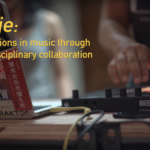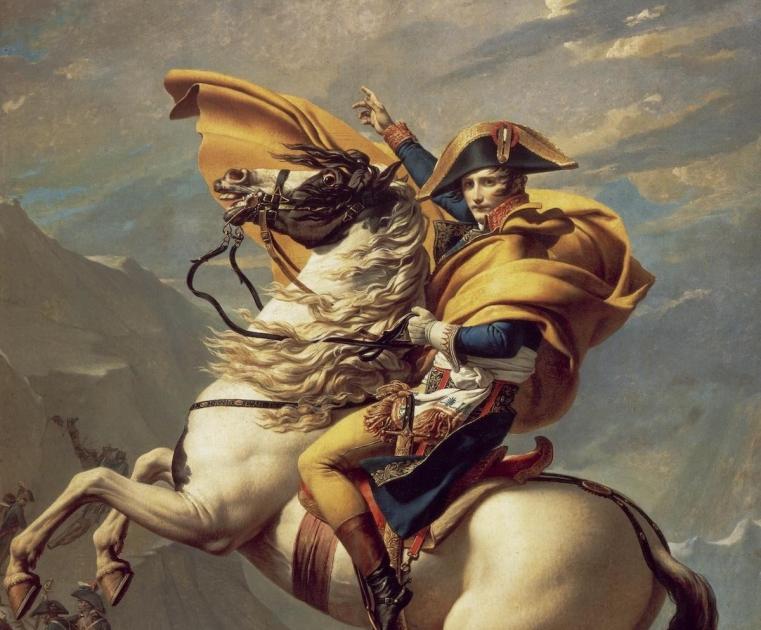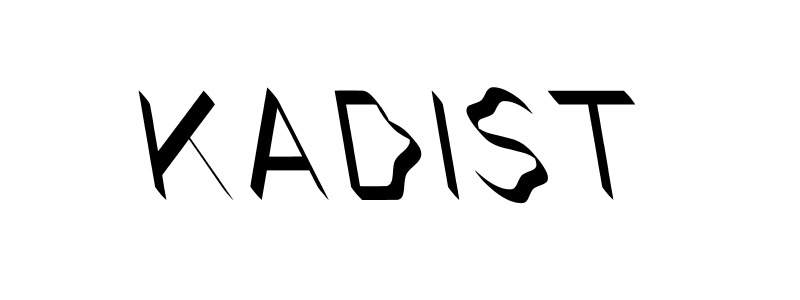Zeppelintribüne
2002 - Film & Video (Film & Video)
10min
Artur Zmijewski
Zeppelintribüne (2002) was shot near the Zepelintribune in Nuremberg, designed by Albert Speer, chief architect of the Third Reich. The 360-metre-long structure is part of a larger architectural complex called the Zeppelinfeld, which the National Socialist used for their marches and rallies. The Zeppelintribune was immortalized in the Leni Reifenstahl’s film-propaganda masterpiece the Triumph of the Will, a record of a 1934 Nazi Party rally. The Zeppeltribune was destroyed by degrees, beginning as early as 1945, when the Americans, who held a victory parade there, blew up a large swastika on the roof. In the 60s, the columns and side-reinforcement were removed, further stripping the ruin of embarrassing architectural allusions to the past. Zmijewski thought of it as a place of pilgrimage for tourists, also as a neglected and dirty place in Germany. In this work, he alludes to how the nation inadvertently works in solidarity to destroy the past. The film features fragments of fascist newsreels from the 1930s, mixed with Zmijewski’s own footage of a pair of Turkish artists in residence in Germany, dubbed the Arbeitsmänner (“workmen”). Shovel in hand, the artists parade around with spades in front of the tribune, parodying the military drill ritual leaving us with a film about impersonation and memory, memory so perverse that it persuades tourists to raise their hand in the gesture of the Nazi salute.
In most of his work Artur Zmijewski uses the same tested method: he devises a scenario, sets up a situation, and introduces a group of individuals to participate and experiment with how they react. He films them and rarely takes part in the act himself. The other half of his work consists in editing the material. Through editing, Zmijewski sets up his argument, emphasizes important moments, and conjures, more than often, a highly emotive plot, which leaves the films looking like self-directed documentaries. An inseparable part of this strategy is exposing the project’s participants to the experience of emotion, where more than often he is personally involved. The nature of his work, an inseparable connection to documentation and the truth of human emotions, betrays the syndrome of disbelief in representation, depiction, and mediated expression. The artist belongs to a generation of Polish artists who in the 1990s experienced the transformation of their world, a transformation that language failed to keep pace with. The exhaustion of language, the wearing away of public discourse, is doubtless a measure of the crisis of social communication. The strangeness of the seemingly familiar body is also one of Zmijewski’s major themes. It can be literal and occur in prosaic circumstances stripped of any surrealist marvel. And yet it has explosive force and political effects. Artur Zmijewski was born in 1966 in Warsaw. he lives and works in Warsaw, Poland.
Colors:
Related works featuring themes of: » Polish
» see more

© » KADIST
Agnieszka Kurant
2022For Sentimentite Agnieszka Kurant collaborated with Justin Lane, CEO and Co-Founder of CulturePulse, to gather global sentiment data that has been harvested from millions of Twitter and Reddit posts related to 100 seismic events in recent history...

© » KADIST
Agnieszka Kurant
2022For Sentimentite Agnieszka Kurant collaborated with Justin Lane, CEO and Co-Founder of CulturePulse, to gather global sentiment data that has been harvested from millions of Twitter and Reddit posts related to 100 seismic events in recent history...

© » KADIST
Agnieszka Kurant
2022For Sentimentite Agnieszka Kurant collaborated with Justin Lane, CEO and Co-Founder of CulturePulse, to gather global sentiment data that has been harvested from millions of Twitter and Reddit posts related to 100 seismic events in recent history...

© » KADIST
Agnieszka Kurant
2018Agnieszka Kurant’s Placebo VIII brings together a series of imaginary pharmaceuticals invented within the fictional narratives of literature and film...
Other related works, blended automatically
» see more

© » KADIST
Agnieszka Kurant
2022For Sentimentite Agnieszka Kurant collaborated with Justin Lane, CEO and Co-Founder of CulturePulse, to gather global sentiment data that has been harvested from millions of Twitter and Reddit posts related to 100 seismic events in recent history...

© » KADIST
Agnieszka Kurant
2022For Sentimentite Agnieszka Kurant collaborated with Justin Lane, CEO and Co-Founder of CulturePulse, to gather global sentiment data that has been harvested from millions of Twitter and Reddit posts related to 100 seismic events in recent history...

© » KADIST
Agnieszka Kurant
2022For Sentimentite Agnieszka Kurant collaborated with Justin Lane, CEO and Co-Founder of CulturePulse, to gather global sentiment data that has been harvested from millions of Twitter and Reddit posts related to 100 seismic events in recent history...

© » KADIST
Agnieszka Kurant
2018Agnieszka Kurant’s Placebo VIII brings together a series of imaginary pharmaceuticals invented within the fictional narratives of literature and film...
Related works sharing similar palette
» see more

© » KADIST
Thomas Kilpper
2009These two images come from the series called “State of Control” which Kilpper made in the building formerly occupied by the Stasi in Berlin...

© » ARTS EQUATOR
The working processes of artists: .gif | ArtsEquator Thinking and Talking about Arts and Culture in Southeast Asia Articles August 2, 2019 In this video, indie-electronic duo .gif, made up of Nurudin Sadali and Chew Wei Shan or Weish, are interviewed by LASALLE students Narrel Wisaksono and Aqid Aiman...

© » ART & OBJECT
Napoleon's Hat Sells for $2 Million | Art & Object Skip to main content Subscribe to our free e-letter! Webform Your Email Address Role Art Collector/Enthusiast Artist Art World Professional Academic Country USA Afghanistan Albania Algeria American Samoa Andorra Angola Anguilla Antarctica Antigua & Barbuda Argentina Armenia Aruba Ascension Island Australia Austria Azerbaijan Bahamas Bahrain Bangladesh Barbados Belarus Belgium Belize Benin Bermuda Bhutan Bolivia Bosnia & Herzegovina Botswana Bouvet Island Brazil British Indian Ocean Territory British Virgin Islands Brunei Bulgaria Burkina Faso Burundi Cambodia Cameroon Canada Canary Islands Cape Verde Caribbean Netherlands Cayman Islands Central African Republic Ceuta & Melilla Chad Chile China Christmas Island Clipperton Island Cocos (Keeling) Islands Colombia Comoros Congo - Brazzaville Congo - Kinshasa Cook Islands Costa Rica Croatia Cuba Curaçao Cyprus Czechia Côte d’Ivoire Denmark Diego Garcia Djibouti Dominica Dominican Republic Ecuador Egypt El Salvador Equatorial Guinea Eritrea Estonia Eswatini Ethiopia Falkland Islands Faroe Islands Fiji Finland France French Guiana French Polynesia French Southern Territories Gabon Gambia Georgia Germany Ghana Gibraltar Greece Greenland Grenada Guadeloupe Guam Guatemala Guernsey Guinea Guinea-Bissau Guyana Haiti Heard & McDonald Islands Honduras Hong Kong SAR China Hungary Iceland India Indonesia Iran Iraq Ireland Isle of Man Israel Italy Jamaica Japan Jersey Jordan Kazakhstan Kenya Kiribati Kosovo Kuwait Kyrgyzstan Laos Latvia Lebanon Lesotho Liberia Libya Liechtenstein Lithuania Luxembourg Macao SAR China Madagascar Malawi Malaysia Maldives Mali Malta Marshall Islands Martinique Mauritania Mauritius Mayotte Mexico Micronesia Moldova Monaco Mongolia Montenegro Montserrat Morocco Mozambique Myanmar (Burma) Namibia Nauru Nepal Netherlands Netherlands Antilles New Caledonia New Zealand Nicaragua Niger Nigeria Niue Norfolk Island Northern Mariana Islands North Korea North Macedonia Norway Oman Outlying Oceania Pakistan Palau Palestinian Territories Panama Papua New Guinea Paraguay Peru Philippines Pitcairn Islands Poland Portugal Puerto Rico Qatar Romania Russia Rwanda Réunion Samoa San Marino Saudi Arabia Senegal Serbia Seychelles Sierra Leone Singapore Sint Maarten Slovakia Slovenia Solomon Islands Somalia South Africa South Georgia & South Sandwich Islands South Korea South Sudan Spain Sri Lanka St...
Related works found in the same semantic group
» see more

© » KADIST
Amie Siegel
2013Winter is a film installation of multiple tenses—shot in the recent past, depicting an unknown future, unfolding (and changing) in the present of the exhibition...

© » KADIST
Julien Crépieux
2012Julien Crépieux is interested in the medium of video and its confrontation with cinema...



